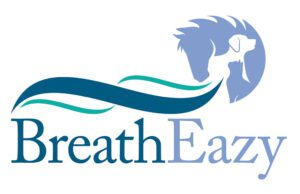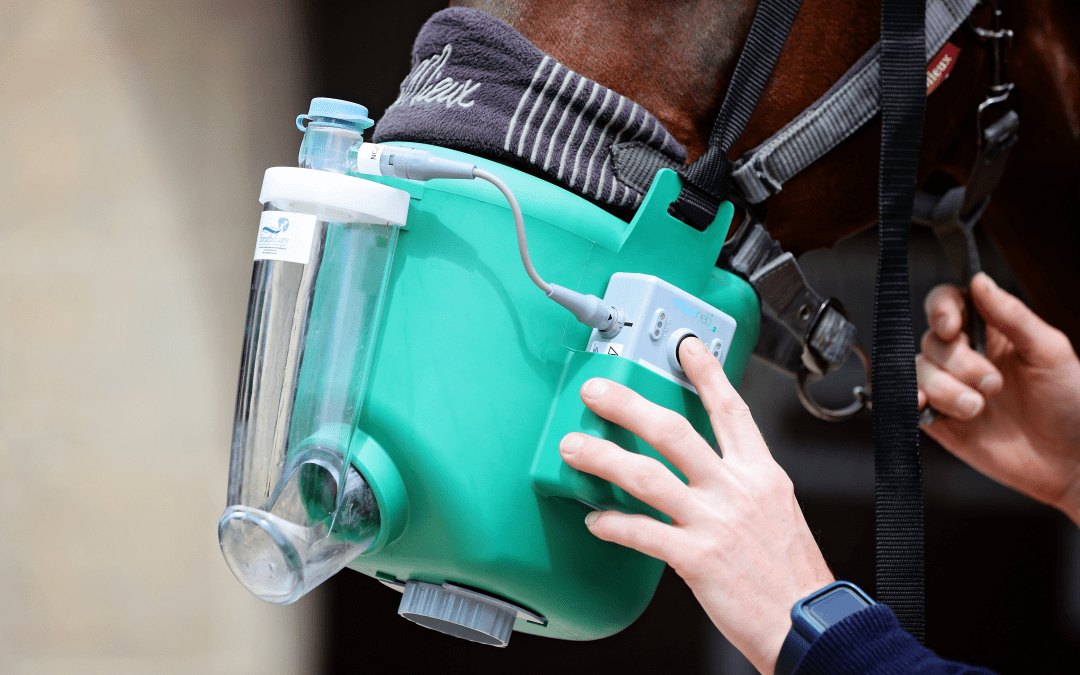From elite, high-level competitions to long, leisurely hacks, every horse should be able to feel their best. Their health and well-being rely on many factors, with one of the most important being their respiratory health.
So, why is respiratory health important, what are some of the signs of breathing issues in horses and how can you help? Read on to learn more.
The importance of understanding your horse’s breathing
Horses have a unique respiratory system. Unlike humans and many other animals, they are obligate nasal breathers, meaning that they are unable to breathe through their mouths. Even small breathing issues can have a big impact on your horse’s performance and how well they recover after exercise.
And there’s lots that a horse’s respiratory system has to contend with. Dusty stables, high pollen counts or mould spores from hay can all take their toll. Upper respiratory infections are a risk too. Strangles and influenza are particularly common in young horses, especially those that are kept in larger groups, but respiratory infections can affect all horses, whatever their age.
By understanding the way your horse breathes and recognising early signs of respiratory issues, you can take steps to maintain their lung health and overall well-being.
Recognising respiratory issues in horses
As with any health issue, spotting issues early can make a huge difference to your horse’s recovery, reducing discomfort and improving treatment outcomes. Horses with respiratory conditions may show signs including:
- Increased breathing rate
- Coughing
- Nasal discharge or fluid
- Heavier or laboured breathing
During exercise you may noti
ce some other signs. These will be particularly apparent during or after intense exercise:
- Decreased performance
- Reduced energy levels
- Increased recovery time
Preventative treatments for respiratory health
Prevention is almost always better than cure. Incorporating airway maintenance therapies into your horse’s daily routine can support their respiratory health and help to prevent the onset of respiratory issues. It can also be beneficial for horses with a diagnosed condition, such as equine asthma.
How can you do this?
Nebulisation of prescribed medication is one of the most effective ways of managing equine asthma. By delivering inhaled medications directly to the lungs, nebulisation allows for targeted treatment with reduced likelihood of side effects. But nebulisation can also be used to deliver non-drug therapies and so support respiratory health in all horses. This can be particularly beneficial at times of increased risk, including times of stress, prior to travel or attendance at shows.
Does my horse need a nebuliser or inhaler?

Routine maintenance: saline nebulisation
Saline is what is known as a mucolytic. Nebulisation of saline reduces the viscosity of respiratory mucus, helping to clear excess mucus from the airways. Not only does excess mucus narrow the airways, but it may also trap irritants and bacteria. Saline nebulisation can also be beneficial for horses with conditions such as equine asthma, helping to support respiratory health between flare-ups.
Routine maintenance: essential oils
Essential oils known for their airway clearing benefits can also help to support respiratory health. Balsamic Air, which contains a blend of high-grade essential oils including eucalyptus and niaouli, can be administered in feed or by nebulisation. As well as airway clearing benefits, Balsamic Air also helps break up respiratory mucus.
Some essential oils may also have antimicrobial effects. Immuno-San contains a blend of essential oils including eucalyptus, Mentha arvensis and Cinnamomum camphora, and has been shown to reduce the risk of secondary bacterial infections in the airways.1
Routine maintenance: chelated silver
Nebulised silver can have both antibacterial and antiviral effects2,3 and may help to provide additional support during periods of heightened infection risk, helping to reduce the spread of respiratory infections on a yard for example.
In summary, maintaining optimal equine respiratory health is essential for your horse’s wellbeing. Proactive airway care, including through the use of routine nebulisation with saline and other non-drug therapies, can make a significant difference in supporting your horse’s respiratory health.
References
- Van Erck-Westergren, J. et al. Anti-microbial and additional anti-inflammatory effects of inhaled essential oils in horses treated for IAD. World Equine Airway Symposium.
- Frippiat, T. et al. (2021) Evaluation of the Bactericidal Effect of Nebulized Silver Nanoparticles on Common Respiratory Bacteria in Horses- In Vitro Studies. J Equine Vet Sci. 103:103635.
- Frippiat, T. et al. (2023) In vitro virucidal activity of nebulized citrate-complexed silver nanoparticles against equine herpesvirus-1 and murine norovirus. Virology 585:232-239

